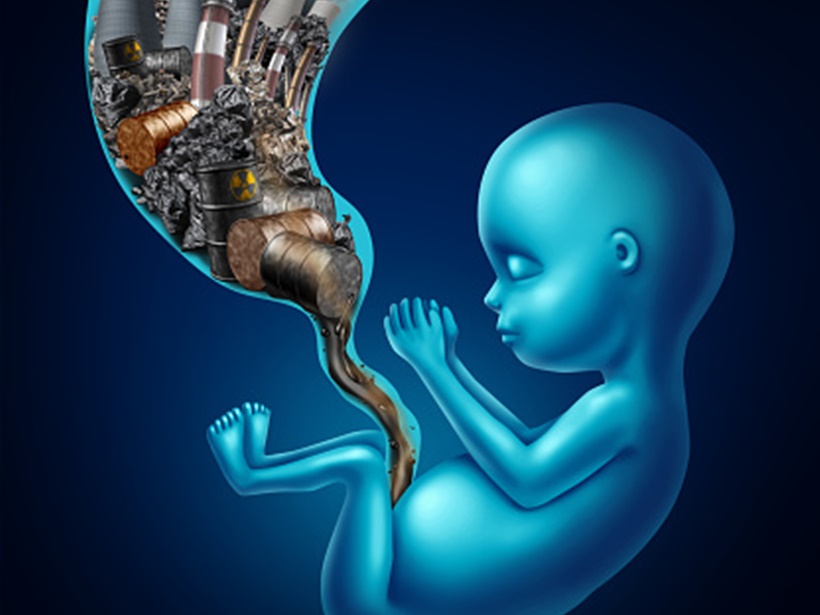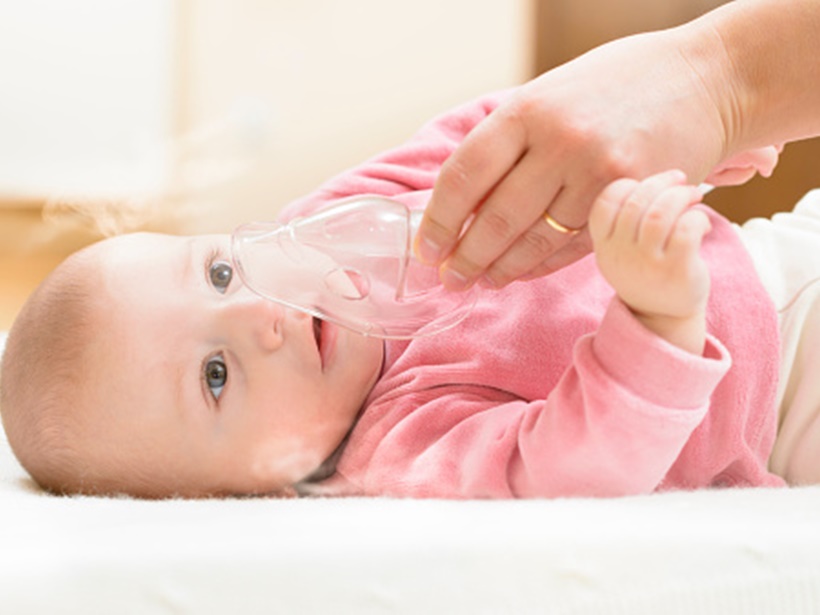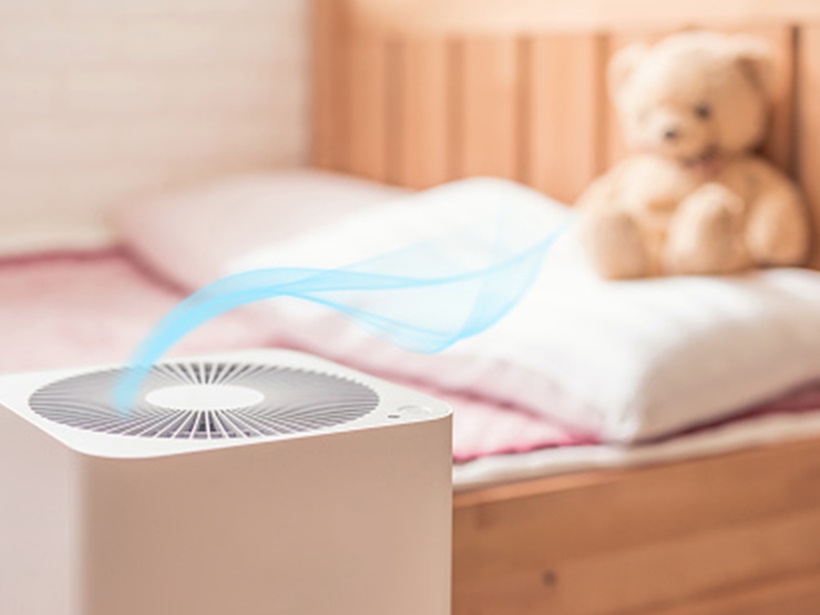In 2016, over 1.25 lakh children under the age of five died in India due to exposure to air pollution, mentioned a WHO report.
The deteriorating air quality in Delhi isn’t unknown to us. Air quality in the city continues to be “severe” and the smoggy mornings and evenings that we are exposed to is proof. People are battling the harmful effects of air pollution on their health on a daily basis, from facing irritation in the eyes to breathing problems. More than the adults, it is children, especially babies, who become prone to greater health problems due to pollution.
Air pollution is a leading killer of children
The results released in a recent study by World Health Organisation (WHO) titled Air Pollution and Child Health: Prescribing Clean Air, has shocked many. Dubbing air pollution as one of the leading killers of children worldwide, the study throws light on how children are more susceptible to air pollution during their fetal development and in their earliest years. And that’s because children breathe faster than adults. “Their lungs, organs and brains are still maturing. They breathe faster than adults, taking in more air and, with it, more pollutants. Newborns and infants, meanwhile, spend most of their time indoors, where they are more susceptible to HAP (household air pollution),” mentions the study.
How pollution can affect a baby in the womb
Not just newborn babies or infants, air pollution can affect foetuses, thereby leading to birth defects too. When the mother is exposed to air pollution, so is the foetus through placenta that exchanges substances between the two. Certain inhaled or ingested pollutants can cause oxidative stress, damage DNA and reduce absorption of nutrients by the fetus, the study revealed, and can alter the newborn’s immune cell population and may predispose children to allergies and asthma.


Air pollution can also affect the birth weight of the baby. In a study conducted as part of WHO’s research, in India, an “increase in exposure to PM 2.5 during pregnancy was associated with a decrease in birth weight of four gm and a two per cent increase in the prevalence of low birth weight.”
Effects of air pollution on a baby’s growth
As a newborn, the physical defences and immunity are not fully developed, making them more vulnerable to diseases and ailments. In such cases, exposure to air pollution can be detrimental. Here’s how:
Infant mortality:
The earlier the child’s exposure to air pollution, the greater is the potential loss of healthy years of their life. Exposure to air pollution contributes to more than half of all deaths from ALRI (acute lower respiratory infection) in children under five years in the lower and middle-income countries where exposure to HAP is relatively more. The situation is even worse in low and middle-income countries, where nearly 98 per cent of all children under five years are exposed to PM 2.5 levels above WHO air quality guidelines. In 2016, over 1.25 lakh children under the age of five died in India due to exposure to toxic air, mentioned a WHO report.


Respiratory issues:
While prenatal exposure to air pollution can trigger cardiovascular diseases, the newborn may also be at a risk of reduced lung function and chronic lung disease in adulthood. According to WHO, 5,43,000 deaths in children under five years was recorded in 2016 due to respiratory tract infections caused by pollution.
Asthma is another common problem that children face due to exposure to air pollution. According to WHO, exposure to pollutants such as PM 2.5 and nitrogen dioxide and ozone, is also associated with pneumonia. The study also suggests a positive link between air pollution and tuberculosis in children.
Also Read| Delhi pollution: ‘Mom, my breathing’s hurting’
Affects brain development:
Another study by UNICEF titled Danger in the Air: How Air Pollution Can Affect Brain Development in Young Children, shows how breathing toxic air can “damage brain tissue and undermine cognitive development with lifelong implications and setbacks.” The study explains, “Ultrafine pollution particles are so small that they can enter the blood stream, travel to the brain, and damage the blood-brain barrier, which can cause neuro-inflammation. Some pollution particles, such as ultrafine magnetite, can enter the body through the olfactory nerve and the gut, and, due to their magnetic charge, create oxidative stress, which is known to cause neurodegenerative diseases.”
Exposure to air pollution can impact your child’s learning capabilities too. “Other types of pollution particles, such as polycyclic aromatic hydrocarbons, can damage areas in the brain that are critical in helping neurons communicate, the foundation for children’s learning and development. A young child’s brain is especially vulnerable because it can be damaged by a smaller dosage of toxic chemicals, compared to an adult’s brain,” the study further added.
Obesity:
Researches have also found a link between pollution and risk of childhood obesity. A research published in the journal Environmental Health pointed out how exposure to air pollution from vehicles can increase the risk of obesity in children.
What’s the solution?
Needless to mention, parents need to alert and take immediate measures to protect their children, especially babies from air pollution. With the situation aggravating with each passing day, some people in Delhi NCR are now leaving the city to head to places where they can breathe better air. But for those new parents who are still grappling with air pollution, what measures can they undertake to protect the newborn? Express Parenting got in touch with pediatrician Dr Charu Kalra to get some tips:
1. Avoid exposure to toxic air: Thankfully, babies in our country are not taken out in public before they are at least a month old. Avoiding exposure to outside environment is most important, suggested Dr Kalra.
2. Don’t expose your baby to sunlight in the morning hours: Air pollution is known to be the worst during the early morning hours. So, expose the baby to sunlight only in the afternoon, which is a relatively safer period, said Dr Kalra.


3. Use air purifier: “That air purifiers can reduce a child’s immunity is a big myth,” asserted Dr Kalra. At the same time, one must also use a humidifier along with air purifier, since the latter tends to make the air dry. “This causes a lot of trouble to the newborn, who may have a nasal blockage leading to excessive crying, something that is especially happening in Delhi NCR,” informed Dr Kalra. One can keep indoor plants or maintain vertical gardens in the house.
4. Protect your baby from dust, use organic repellents: Not just the outside environment, parents also need to avoid exposing the newborn to dust and indoor pollution. “Avoid dusting or cleaning the room where the baby is present and use organic mosquito repellents in your room as much as possible instead of chemical sprays.
5. Breastfeed your baby: “Breastfeeding can give the baby a lot of immunity. Feed your child frequently so that they have immunity and also keep hydrated,” added Dr Kalra.
Source: Read Full Article
